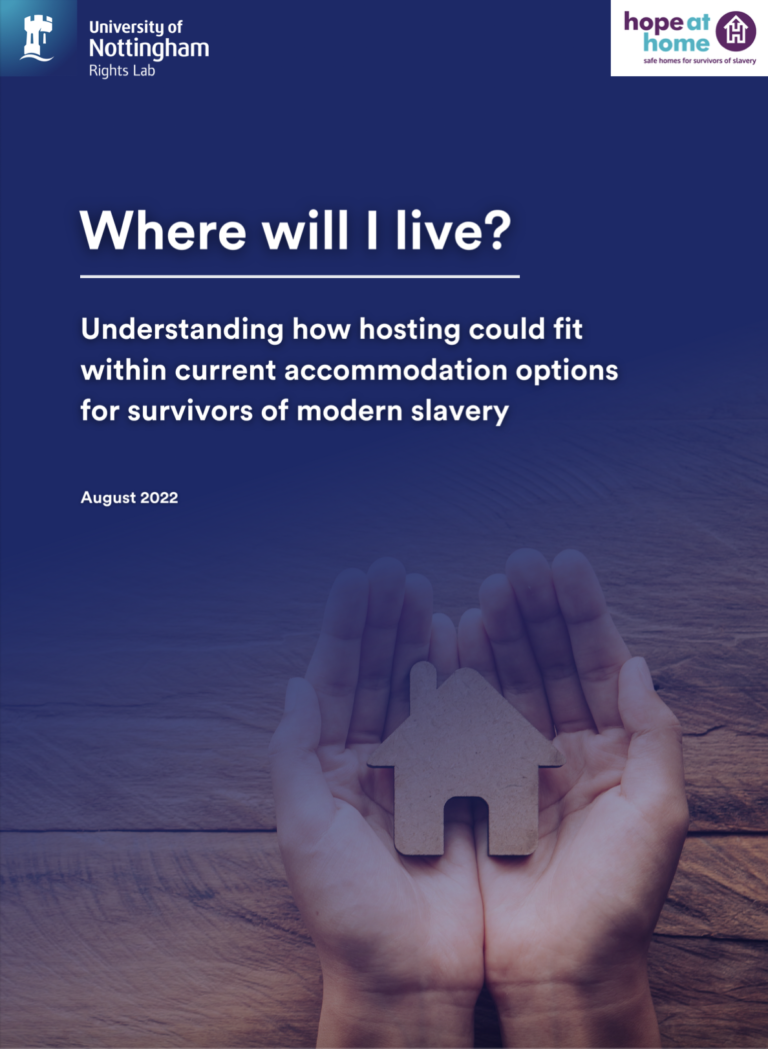Safe accommodation is vital for survivors. Offering safe accommodation enables individuals to find stability to rebuild their lives and plan towards their future. Understanding the role hosting can and does play as an accommodation option for survivors of modern slavery is not something that has been previously explored.
It takes over 400 days to decide an individual’s trafficking status within the NRM instead of the 45 days originally intended.2 As a result the system and what it offers survivors continues to be under enormous pressure, particularly in relation to the provision of safe and appropriate accommodation pre, during and post the NRM.
Research into understanding the accommodation options available to survivors both within and outside of the NRM is therefore vital in understanding what is required to relieve the system and to be able to provide options to survivors.
Hope at Home is a registered charity that established a hosting scheme in 2018, predominantly for survivors of modern slavery who are exiting the NRM and its associated support systems. Hope at Home matches survivors to trained hosts who will accommodate them in their homes for an agreed period.
Hope at Home commissioned this research to assess the current accommodation landscape for survivors of modern slavery, to understand the role hosting plays and to consider the role hosting could fulfil in the future.
Data was collected from those with direct experience of the Hope at Home hosting scheme as well as a desk-based information review of current accommodation options available to survivors. In total 16 interviews were conducted with guests (12) and the Hope at Home staff team (4), and an online survey was completed by 12 hosts and seven referral organisations (4 of these completing the survey verbally with a researcher).
The report shows hosting is an overall positive experience for survivors of modern slavery and consideration should be given to how hosting can be effectively used throughout a survivor’s journey, both within and outside of the NRM. However, despite the positive benefits of hosting, there were acknowledged difficulties in providing safe and appropriate accommodation and meeting individualised guest needs due to the wider approach and policy context facing survivors. These difficulties were found to be true throughout a survivors’ accommodation journey not just via hosting arrangements. The surrounding policy context and hostile environment makes it difficult to provide choice to survivors in relation to their accommodation. Survivors are provided with a one-size fits all approach and undifferentiated accommodation options based on immigration status, rather than their needs. Survivors are rarely presented with choice, nor are there a wide range of accommodation options available to them.

